Having a loved one who is battling a meth addiction can be an incredibly challenging and heart-wrenching experience. Yet, it’s crucial to remember that your support can make a significant difference in their journey toward recovery. Knowing how to support a loved one addicted to meth effectively will help them navigate the path to sobriety and foster a sense of hope and positivity.
There are various resources to help you learn how to support a loved one addicted to meth. Start by understanding the addiction. Knowing what your loved one is going through can help you better serve as an ally and supporter. Educate yourself on meth addiction, the signs of usage, and potential options for addiction treatment in Marne, Michigan. It’s also important to understand that recovery will be a lengthy process with ups and downs along the way.
What Is Meth Addiction?
Meth addiction is a severe substance use disorder that occurs when an individual develops a dependency on methamphetamine, a highly addictive stimulant. This dependency is characterized by uncontrollable cravings and compulsive drug-seeking behaviors, regardless of the detrimental health and social consequences.
As the individual’s tolerance to the drug increases, they may find themselves needing larger doses to achieve the same effect, leading to a vicious cycle of abuse and dependence. In such instances, a meth rehab program is vital, providing a structured environment for detoxification, psychological support, and skill-building to promote long-term recovery. These programs address not only physical addiction but also the underlying mental and emotional issues that often accompany it.
Signs of a Meth Addiction
Recognizing the signs of meth addiction is crucial in getting your loved one the help they need.
Symptoms can vary but often include:
- Significant weight loss due to a suppressed appetite
- Dilated pupils and rapid eye movement
- Unusual bursts of energy and restlessness
- Paranoia, hallucinations, or erratic behavior
- Sores on the skin from scratching
- Rapid or rambling speech
- Neglect of personal hygiene
If you observe these signs, it’s essential to approach the situation with empathy and understanding. Encourage your loved one to consider a drug rehab program. These programs provide professional medical assistance and therapies to help deal with withdrawal symptoms and address the root causes of addiction, increasing the likelihood of a successful recovery.
Tips for Helping an Addicted Family Member
Supporting a loved one addicted to meth can often feel daunting, but there are practical ways you can provide help. Begin by communicating openly and honestly, expressing your concerns without judgment or criticism. Use “I” statements to avoid any feelings of accusation.
For example, “I am worried about you because…” instead of “You are always…”. It’s essential to maintain your health and wellness during this time, so don’t hesitate to seek support for yourself, too, through support groups or counseling.
Remember, you are not alone in this journey, and numerous resources exist to assist you and your loved one. While you cannot force your loved one into recovery, your consistent support and understanding can play a crucial role in encouraging them to seek help.
Find Support and Help Through an Addiction Treatment Program
An addiction treatment program from a treatment center is a great option for a loved one struggling with meth addiction. A comprehensive and individualized program can help the addicted person recognize their addiction and learn to cope with sobriety in an effective way. Many types of treatment programs are available, such as detoxification, cognitive-behavioral therapy (CBT), individual counseling sessions, group therapy sessions, and more. Professional addiction specialists will provide each patient with a personalized treatment plan to meet their needs best. With the right help and support, your loved one can achieve lasting recovery from meth addiction.
No matter how overwhelming or hopeless things may seem, remember that there is always hope for recovery when it comes to meth addiction. Supporting a loved one in this journey can be a difficult and emotionally draining experience. Still, it is incredibly rewarding and can make a lasting difference in their lives.

